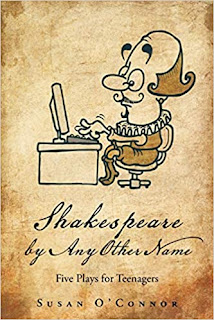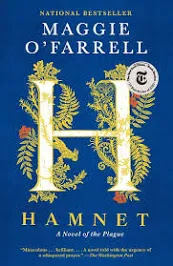One of the greatest human foibles of all times is the speed at which we jump to conclusions, especially in regard to the actions of other people. I won't expound on the many psychological reasons we do this, but suffice it to say that criticizing other people's actions without looking at the facts or even offering support is among our top shortcomings, coupled with its concomitant hypocrisy.
This post's new word provides an apt example of the vitriolic flak we give to dreamers with big ideas, ideas we often criticize as unrealistic, foolish, and impractical. If this reminds you of a character with an impossible dream, you'd be spot on. Yes, it's Don Quixote, the title character of the great Spanish novel The Ingenious Gentleman Don Quixote of La Mancha by Miguel de Cervantes, a man given to unrealistic schemes and great chivalry. A famous Broadway musical, The Man of La Mancha was based on this novel, and the song "The Impossible Dream" is the one people remember most from it. The word? Quixotic, pronounced as it is spelled: [kwicks ah tik].
A quixotic person seems, on the surface, foolish and impractical as he or she pursues lofty ideals, perhaps even those that are capricious or unpredictable and yet imaginative and hopeful. His or her actions may seem quixotic at first glance, but they may actually be the beginning of a brilliant idea, invention, career. In the end, an end that the average person may not have been able to envision, the dreamer may have been caught up in the pursuit of "unreachable" goals without regard to practicality and yet still succeeded. We all know a few of these dreamers.
I'll begin with my favorite, J.K. Rowling. When she wrote the first Harry Potter book, she was in a difficult financial state and a doomed marriage with a young daughter to care for. She wrote constantly, using her knowledge of mythology and the classics and never gave up. She dreamed big and failure did not break her. In her 2008 Harvard commencement speech, she focused on the fringe benefits of failure and the importance of imagination. She even used the word quixotic as she described the way too many people see dreamers with big ideas. Today J.K. Rowling is one of the most successful and beloved writers of fiction as well as one of the wealthiest women in the world.
Winston Churchill is another hero figure I admire, a man who was severely criticized for speaking the truth. Churchill believed all of his life was preparation for the big event to come, World War II. No one believed his prediction of the war. England was in a good state economically with Germany in 1935-36 and didn't want to destroy it. And of course, after the horrors of the first World War, no one in England was keen to become involved again. As it turned out, Hitler had other plans, Churchill became known as a wartime leader, and Germany lost the war and surrendered.
Oprah Winfrey was fired from her television job early in her career because her boss said she was unfit for television. Walt Disney was fired from his early job because he "lacked imagination." Colonel Sanders suffered a thousand rejections as he took his famous chicken recipe from restaurant to restaurant. It took Henry Ford years of struggling with bankruptcy, disputes with financial backers and people who simply didn't believe in his product before he was able to develop his famous Ford Motor Company in 1903. Elvis Presley was fired early in his career and told to go back to driving a truck, that his career as a singer was heading nowhere. Stephen King's first book Carrie was rejected thirty times by publishers and he threw it in the trash, only to be rescued by his wife and resubmitted to Doubleday.
We know these stories of the quixotic well, but our initial response is, yeah, but they're all famous. I have another story of someone not so famous.
I know a man whose dream was to get an education under the kind of duress that would cause most of us to knuckle under. At the age of four he was reading the London newspapers and watching Germany drop bombs on his city. In 1947, at the age of ten, he was head boy in an exclusive public school in England. In those days being head of the class was literal. His achievement put him in the first seat at the head of the class. What he couldn't have imagined was a rare, virtually unknown eye condition later named keratoconus, a condition in which the clear tissue on the front of the eye (cornea) bulges outward. There was no treatment for this diagnosis at the time, no prescriptive lenses that might correct it, and the head boy's grades began dropping because his eyesight was failing, especially in maths, his strongest subject. He finally left school at age thirteen and went to work in his grandfather's nursery. At age 18, when Britain was involved in so many uprisings in the world that the country needed more troops, he was called up to the British army. At age 20 when he left the army, contact lenses were just beginning to correct keratoconus and he was finally able to correct his vision. It was not until he was in his early thirties that he began studying on his own, with the help of a maths tutor, and attained the A-levels equivalent grades to go to university. He didn't stop there. After being granted a BCE in engineering in only three years, he went to South Africa to learn firsthand about structural engineering on the big dams and eventually earned a PhD. He ended his career as a lecturer at the University of Brighton, UK teaching Masters level earthquake engineering.
Despite what seemed like a hopeless disability and, as a young boy, surviving a war with Germany that ravaged his home--the UK raised his family home on the English Channel to prevent the Germans from occupying England, Patrick O'Connor never lost confidence in his goal of getting the education he needed to fulfill his dream.
Perhaps the way to wholeness may seem quixotic--impractical and unrealistic in the face of so many challenges that must first be met, but the impossible dream of Don Quixote is more than romantic and chivalrous. It is the source of hopeful imagination in which we see ourselves not as we are but as we can be.



















